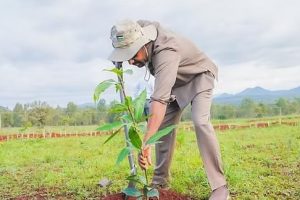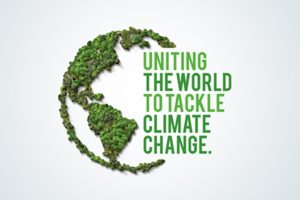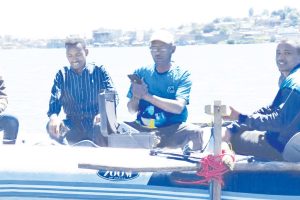Access to electricity in sub-Saharan Africa was set to decrease in 2021. Over 600 million people did not have electricity connections in the region in the stated period. In short, five out of every ten individuals in Sub-Saharan Africa are still living in darkness. In rural areas, the situation was even worse and more than 70 percent of the population lacked access to electricity.
over half a billion Africans still lack access to electricity and some other 900 million are without clean cooking, according to Amani Abou-Zeid (Ph.D.), AU commissioner for Infrastructure and Energy.
Even if the continent has abundant hydro, solar, wind, and bio-energy resources, access to electricity has remained a continental challenge for centuries. The electricity sector in Africa faces huge challenges which include low generation capacity, high costs, unreliable energy supplies and low access rates.
These challenges have adversely affected the socio-economic development of the continent. Hence, scholars and studies in the field have suggested the need to develop robust and large-scale energy infrastructure and markets at the continental, regional and national levels in order to meet current and future demand for access to energy.
They also recommended urgent harmonization mechanisms of policies, legislation, regulatory and institutional frameworks at the regional and continental levels to enhance coordination, cooperation and remove barriers to access to energy.
For Amani Abou-Zeid, the real challenge of reliable energy in the continent has been revealed during the outback of the COVID-19 pandemic. In this hard time, only 25 percent of health centers in Sub-Saharan Africa have access to reliable sources of energy which is a very grave challenge to the sector. Access to reliable energy resources is a structural problem. For instance, since the outbreak of the pandemic, AU has designed various strategies and taken precautions to address problems related to supply of vaccination. However, the application of the programs slows down since most of the health centers are still suffering from serious reliable energy resources. This, in turn, makes it intricate to address vaccines in rural and remote areas. Hence, improving access to energy resources is a key for chilling vaccines, cooking foods, and cleansing environments, she elaborated.
Her statement has clearly shown how producing and access to reliable energy is indeed a serious problem for many African countries. What is more, the efforts that have been exerted and the curious measures taken so far couldn’t bring the desired outcome.
Hence, it is important to work vigorously to address the reliable energy challenges through analyzing and utilizing the alternative energy sources in Africa. It is also vital to coordinate and reinforce the political and technical role of AU member states. Strong political commitment is imperative to create awareness, independent and transparent regulators, share out and allocate adequate responsibilities from national to regional authorities and from regional to continental levels.
Particularly, innovative solutions such as mini-grids and off-grids should be rolled out in rural and remote areas to help the population and to ensure the provision of power to economic centers and water generators.
As to the Commissioner, Africa should work to ensure the development and production of renewable energy sources. Renewable energy production is a major advantage to the continent since it is readily available and abundant everywhere in Africa.
Energy production is imperative for digitizing the institutions and various sectors in Africa, especially, for e-agriculture, e-health, to collect, and analyze data, digital ID, cyber security, and so on. Thus, bringing every activity of the continent online is a lifeline. So, member states should focus on the development of natural gas and renewable energy sources, she advised.
In the era of globalization where the world is marching to digitalization, the availability of energy is fundamental towards development and social progress. Taking this fact into consideration, some African countries, especially Ethiopia, are constructing dams for hydroelectric power generation.
Ethiopia, among others, has been constructing the Grand Ethiopian Renaissance Dam (GERD) to generate hydroelectric power. According to Dr. Abraham Belay, GERD Management Board Chairman Ethiopia’s energy need is growing at an annual rate of 13 percent. Hence, the GERD meaningfully contributes to meeting the growing energy demand in the country.
This shows that the Ethiopian energy development strategy for renewable and clean energy is highly appreciable that can be emulated as a benchmark for the AU and its member states. Although Ethiopia is a developing country, the people and government of Ethiopia have determined to construct one of the biggest dams on the continent which is climate-friendly.
“Developing renewable energy is aiming at generating clean energy since it avoids fossil fuel it is significant to the continent. Improving the energy that we are using into natural gas is also important to have the cleanest energy that is not affecting our health and environment,” Commissioner Amani noted.
Indeed, the production of power from GERD does not affect human health and it has a noble goal to fulfill the energy demand of the people. Within these facts, GERD, as of February 20, 2022, has begun generating 357 MW hydroelectric powers.
Ethiopian Prime Minister Abiy Ahmed said that GERD benefits all African brothers and sisters since the country’s goal is to use the power for its large population that has never seen electricity and to alleviate poverty. The beginning of Africa’s largest power plant turbine generating power is good news for our continent as well as the downstream countries with whom we aspire to work together.
Africa is blessed with natural resources for energy production nevertheless it is not an easy task to construct dams in the continent. This has been observed since the inception of GERD. The covert and overt influence of foreign power, lack of significant financial resources, absence of cooperation from downstream countries, and so on have been great challenges for Ethiopia to construct the dam.
GERD, apart from solving access to electricity problems in Ethiopia, has come up with various lessons for Africans: self-reliance, protecting sovereignty, generating internal finance, effective use of the country’s natural resources, ensuring the right to development, and so on. Taking a lesson from GERD will help the continent to be committed and stand against any problems related to constructing dams for power generation which is a major challenge to Africa.
It is obvious that access to electricity is a challenge for the continent; hence, it is imperative to provide financial, technical, and moral support for Ethiopia in order to see additional dams. In this regard, GERD is considered as a typical project in addressing the renewable energy demand of not only Ethiopia but also Africa.
Ethiopia’s desire concerning the dam is not just to produce energy for local consumption but also exporting power to neighboring countries and Europe to reduce carbon emission that affects the environment, the premier explained. Accordingly, he requested the Western world, potential investors to cooperate with Ethiopia in building new projects considering the electric shortage in the continent instead of magnifying water politics.
BY EPHREM ANDARAGACHEW
THE ETHIOPIAN HERALD SUNDAY EDITION 27 FEBRUARY 2022





